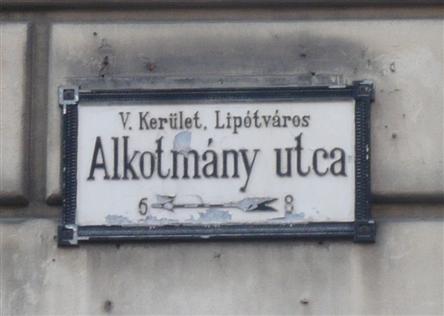Dear Hungarian citizens,
Dear EU fellow citizens,
I come from a country which was ruled during 48 years by an authoritarian regime. Twelve years after the end of this dictatorship, Portugal has acceded to the European Union, finally consolidating the democracy for which so many people had struggled during so many years.
Your country, Hungary, has suffered during more than 40 years of a horrible regime. In 1989, you finally got your freedom from the communist regime and a little over a decade later your country became a Member of the European Union.
The European project may have imperfections, but its main purpose serves us all – and mainly those European citizens like us whose countries have faced alone many years of terror under undemocratic regimes. The foundations of our common endeavour are described in article 2 of the revised Treaty on the European Union of 2009, which states that “the Union is founded on the values of respect for human dignity, freedom, democracy, equality, the rule of law and respect for human rights, including the rights of persons belonging to minorities”. Article 2 then goes on to say that “these values are common to the Member States in a society in which pluralism, non-discrimination, tolerance, justice, solidarity and equality between women and men prevail.” Hungary is always cited as an example in this process: your country actively participated in the drafting of this important article – the first substantive commitment of the Union – and was the first EU Member State to ratify the Treaty.

The promotion of the values of democracy, rule of law and human rights is also the first objective of the Union, according to article 3. And then there is another important article in the Treaties which has been regularly and fairly quoted by your government. It is article 4: “The Union shall respect the equality of Member States before the Treaties […] The Member States shall facilitate the achievement of the Union’s tasks and refrain from any measure which could jeopardise the attainment of the Union’s objectives”.
These Treaties entered into force in December 2009 and since then Member States, the European Institutions and us all as European citizens have to deal and comply with this new and recent legal basis.
In February 2012, on the basis of this new legal framework, the European Parliament decided to have a report on the situation of the Fundamental Rights in Hungary. As any other official text by the European Parliament, the decision to draft this report was made by the majority of the democratically elected members of this house. Let me remind you that, since the last European Elections in 2009, no single political group has the majority in the European Parliament, although the by far biggest group is the EPP to which the party of the current Hungarian government belongs. It has both been said that there is a right-wing majority at the European Parliament, and that there is a left-wing majority. But the most important point is that all 754 Members of the European Parliament take seriously their responsibility to guarantee that the fundamental rights of the 500 million EU citizens are respected, protected and promoted.
Two months after this decision, I was appointed as rapporteur for this report, the first one dealing with the contents that I have described above in the case of a specific country. There were many constitutional and legal changes in Hungary in recent times, and to assess them fairly is a task that needs to be conducted in a careful and respectful manner. In order to ensure a transparent and fair procedure, I have decided that the first step would be the drafting of 5 working documents on sectorial aspects of the legal, institutional and constitutional changes in Hungary. This was an open and collaborative work and, for the first time in the European Parliament, the working documents – which are normally only signed by the rapporteur – were drafted by me and one representative of 5 of the main political groups represented at the European Parliament: the EPP, the S&D, ALDE, GREENS/EFA, ECR and GUE/NGL. These working-documents were one by one debated in the Civil Liberties Committee of the European Parliament, usually abbreviated as LIBE. We have also received comments from the Hungarian government and the working documents were therefore updated taking into consideration the Hungarian authorities’ position.
This permanent dialogue – respecting pluralism and democracy at the European and at the national level – was very important for the last year’s preparatory work to the drafting of this report.
The text that I have presented is the result that I have derived of this broad consultation. But this is not the end of the procedures. This draft was submitted to a first debate, it passed by a phase of amendments that were considered in subsequent debate and it will then be voted in the Civil Liberties’ Committee; we will then have another stage of amendments by the political groups and then, finally, a debate and a vote in the plenary of the European Parliament. The respect of this parliamentary procedure with sufficient time and occasion for all voices do be heard is crucial to ensure that the report is not one-sided, incorrect or somehow applying double standards.
Hungarian Spectrum
Draft Report by Rui Tavares





 MMA countdown – Free Artists welcomes the resigned MMA-members!
MMA countdown – Free Artists welcomes the resigned MMA-members! TRANSZPARENCIÁT!
TRANSZPARENCIÁT!